
Sam Poh
Orphan Lee Dan-hung is made a scapegoat by her cousin Chor Kwai-ping. Facing drug trafficking charges, Lee is released on parole with the doctor To King-chung as guarantor. Lee works as a sanatorium nurse. The modest caretaker, Matriarch To plays matchmaker for her son To Ngan-sing and Lee. Ashamed of her past, Lee listens to the doctor's advice and keeps the Tos in the dark. Chor returns and coerces Lee into colluding with smuggling ring by threatening to kill her newborn daughter. The reluctant Lee is arrested in a police raid together with the gang members but is later acquitted. With a reputation to defend, To toughens his heart and expels Lee. Lee leaves for Borneo with a touring opera troupe but a yearning for her daughter brings her back several years later. Feeling for the upset in-law, Matriarch To grants her stay until his son's return from business in a few months' time. When To returns, he decides to make up for the wasted time by bringing Lee and her daughter home.

Wet Nurse
Married and with a son on the way, Zhang takes shelter in a big old house haunted by a ghostly female vampire.

Aunt Kwong
Cheung framed Chan For. Chan orders his wife not to tell this to their children, Ah Lan and Hung. His wife passes away. On her deathbed, she asked a neighbour, To Chung-man, to take care of her children. Claiming to be a good friend of their father, Chan For moves in to the bed next to Ah Lan to take care of his children. Hung likes this uncle because he always treats him generously. But Ah Lan finds "Uncle For" weird and enthusiastic. Ah Lan is forced to pay her mother's debt. Hung is suffering from acute appendicitis. To solve Ah Lan's financial problem, Chung-man returns to his rich family and accept an arranged marriage. Ah Lan decides to sell herself to the construction site foreman for one night. Chan For wants to stop his daughter from making this deal, so he agrees to work for Cheung again. The next day he carries out a robbery and is caught. Ah Lan and Chung-man visit him in jail, and hold their wedding ceremony in front of him. He looks forward to the days when he returns.

Aunt Wan
The Lok's family disperses when Japanese occupied China. Mrs. Lok's company prospers in Hong Kong. Her son Tin-yam looks after her business. She misses her daughter. Another daughter Chui-yin dates Kuk-tat. Mrs. Lok hopes that Tin-yam will find a good partner. Wan Yuk-yin works in Mrs. Lok's company and meets Tin-yam. They fall in love. Mrs. Lok asks Yuk-yin to leave Tin-yam. Facing his mother's objection, Tin-yam falls ill. Mrs. Lok let them marry. The wedding guests despised the bride, which makes Mrs. Lok uncomfortable. The couple lives happily, but Mrs. Lok and Chui-yin make Yuk-yin embarrassed. Kuk-tat covets the Loks' fortune. He steals their jewels. Mrs. Lok thinks Yuk-yin did it. Yuk-yin is innocent, but she is expelled. Tin-yam returns. Yuk-yin's parents seek justice at the Loks. Mrs. Lok's saw the Yuk-yin's birthmark. She realizes Yuk-yin is her lost daughter. Mrs. Lok decides to be a dutiful mother. Tin-yam is an adopted son of the Loks so the couple lives happily.
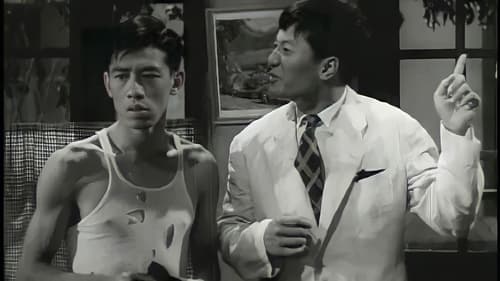
Mrs. Yau (Landlord's wife) 包租婆
Adapted from a popular 'three dime novel' the story revolves around two down-and-out buddies, one streetwise and quick-witted the other naïve and kind-hearted. This oddball duo go through up and downs and eventually get their break in life.
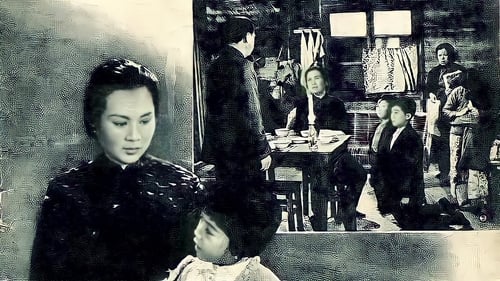
Third Aunt
Poor teacher Chan Chi-hong, his wife Lee Yuk-mei and their five children survive on his meagre pay. When he is laid off by two schools in a row, the family runs into difficulties. The children resort to begging on the streets to pay the mother's medical bills. Turning to writing, Chan's novel fails to find a publisher and, worse still, he comes down with tuberculosis. Dealt a further blow by the death of the youngest daughter and the pressures from the loan sharks, Chan contemplates killing himself and his family but changes his mind when he witnesses the sacrifices made by other parents for their children. He vows to be a dutiful father and tries his best to overcome their adversities. His novel is finally published and sells well. Through thick and thin, the family at last sees the light at the end of the tunnel.
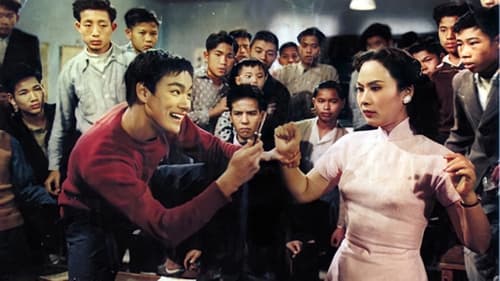
When a young street thug becomes friends with the headmaster of a school, he gives up the triad life to enroll in the school.

The Talking Bird (能言鳥) is a 1959 Hong Kong musical fantasy film directed by Bong Luk. The film was produced by Shaw Brothers and is based on the screenplay by Tin Chi Ng.

Lee Sun-fung is renowned for adapting literary classics for the silver screen. To commemorate the seventh anniversary of the Union Film Enterprise known for producing quality films and co-founded by Lee, Human Relationships is adapted from writer Ba Jin's novel into film. The Yiu family moves into a manor. Mrs Yiu, while frustrated by the way her step-son is spoiled by her husband and mother-in-law, develops a friendship with a kid (Michael Lai) who steals flowers from the mansion's garden. She later learns that he is the son of the place's former owner whose downfall at middle age is the result of being spoiled when young. Lai was only a child but gained a foothold among seasoned veterans like Cheung Wood-yau, Ng Cho-fan and Pak Yin.

Early Shaw Brothers thriller.

Mui's mother
Songstress Mui Yee-wah falls head over heels for painter Wai Tik-fung despite their age difference. Because Wai is a married man, Mui's mother is against the match. Mui falls ill from grief. Rich heir Siu Kar-wai seizes the chance to successfully propose to Mui. However, Siu is unable to let go of Mui's past. In a fit of anger, he fires a deadly shot at Wai.

A Shaw and Sons production

A Shaw and Sons production.

A Hong Kong drama

To's Mother
Lau Mung-mui chances on To Lai-leung and their encounter transcends to a rendezvous in their dreams. They admire each other, but they do not know each other's names and addresses. They keep on thinking of each other and decide to take each other as their future husband and wife. Mui's father wants his son to get married, but he pays no attention to his father's wishes. Mui leaves home to look for Leung. Leung's father forces his daughter to marry her rich and powerful cousin. Leung becomes despondent and dies, following an arranged marriage with her cousin. Mui sought everywhere for Leung for three years, but to no avail. He locates the home of Leung, but the household has moved out. The house is guarded by an old servant. Mui, chasing Leung's spirit, has a brief romance with her. Acknowledging that their union will be hindered by their incompatibility as a mortal and a spirit, Leung reincarnates as a mortal so that their love may be rekindled.

The Head of Southern Stone Village, Lee Ba-hung bullies others with his power. Yet he has no knowledge that his niece Lee Chun-hong is actually the Black Heroine who confronts him. It turns out that Chun-hong's father is fearful that Ba-hung would bully the mother and daughter of Chun-hong, hence he has disguised Chun-hong with woman attires. Chun-hong's identity is unveiled when she devotes herself to helping the refugees of a disaster by distributing food and emergency supplies. Ba-hung would like to murder Chung-hong by hanging, yet it ends in him being killed by his followers.

Wet nurse
Though her marriage with rich businessman Chan Hak-lit is crumbling, Anna Poon refuses to accept her childhood sweetheart Wong Kei-shu's courtship. Anna's younger sister Mei-na has a crush on Shu and treats Lee Man coldly. When she sees Anna being with Shu, she taunts Anna with stealing who she likes. Anna is hurt and goes back to Chan's house. Chan holds a house party and invites business celebrities. Shu attends it and when tells Anna he loves her when they dance. Anna rejects him and tells him never to see her again. Chan goes to the racecourse. When Shu falls down from a horse, Anna faints. Chan asks Anna what her relationship with Shu is. He warns her not to have any wrongdoing and ruin his reputation. Shu is fine and asks Anna to meet for the last time. Anna cannot turn down him and goes to meets him. Lit miscomprehends the situation and files a divorce. He even forbids Anna to see their daughter. A distressed Anna becomes a victim of love in a conservative society.

Sai-wah's mother
Chan Sai-wah abides by his late father's word and marries the wealthy Yam Suk-kuen. They have a son, Kwok-leung. Though Wah is manager of the hotel owned by his father-in-law, Kuen is not a good wife. For all the years of their marriage, Wah has never been happy. Attracted to the humble and honest Carrie Mui, Wah decides to leave his domineering wife Kuen, but is stopped by his father-in-law. The lovers set off to Macau for a new start.
Their life has become increasingly miserable under the pressure from Yam's family. When Wah leaves to seek help from his son in Hong Kong, Carrie decides she should leave so that Wah can go without feeling any guilt or burden. On the other hand, Wah is too ashamed to face his son, and returns to Macau. He lives his life in misery. Years pass, the lovers meet again. Wah is reduced to begging in the streets while Carrie becomes an opera diva.

Musician for blind singers
Reporter Yu Mong-yuen is recovering from a leg injury in his fiancee Man-wah's apartment. Bored, he looks out the rear window and observes the life of the neighbouring building. Among the tenants are a sugar-daddy and his mistress, a middle-aged man wants to marry a young girl, but she is in love with his son. Finally, she hatches a plot and makes the man agree to her marrying his son ; a sly fortune-teller ; a lively gym, a rich widow quarrels with the trainer of a gymnasium because his dog has bitten her cat ; and an opera school, a woman signs, leaning on the balcony, and a man tries to strangle her. In fact they are rehearsing an opera…… One evening, Wah is on the night shift, and Yuen watches the opera troupe rehearse to the end. Under the influence of drugs, Yu mistakenly believes that a divorced man has murdered a taxi dancer. He alerts the police, but the whole thing is nothing more than a misunderstanding.
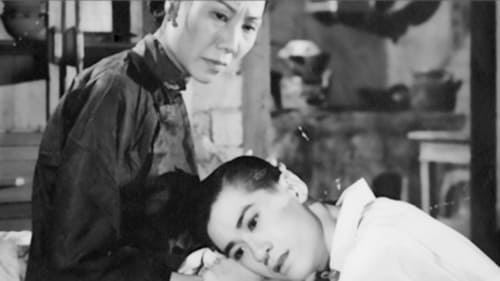
An opera troupe has to dissolve in view of the poor economy. Comedian star Sang Kwai-lei loses his job and he has no alternative but to play the lion character in the opera troupe of his former junior apprentice Chan Hau and pawn his stage costume. He aims at earning enough money to support the final year's secondary school studies of his elder son Chi-kuen. Kuen however refuses to continue his studies, seeing that his father has to put aside his dignity to earn money and his mother is worried. Lei is enraged and uses the money to support his younger son Chi-wai's studies.
Again, Lei loses his job and he resorts to giving street performances, his wife takes up sowing work in her spare time and she dies after a long illness. Kuen works to support himself through school, but Wai is less fortunate, he is forced to enrol in an opera troupe as an apprentice. Years later, the dying father joyfully embraces Chi-kuen's return from his studies.

Mrs Cheung
Cold Nights features great performances by both Pak Yin as a tough minded “new woman”, Shusheng, and Ng Cho-fan as her weak husband, Wang Wenxuan, whose spirits have been crushed by the Sino-Japanese war.

The film features a conflict between a young wife and her mother-in-law, depicting the lives of ordinary people and their profound problems.

Madam Chow
Hak-ming heads the Ko Family, but he and his brothers, Hak-ting and Hak-on, and the second wife of the late Master Ko quarrel. Young Cousin Mui, who has tuberculosis, is forced by to marry an older woman. Kok-sun is guilty of being unable to stop the marriage. Sun and maid Chui-wan are wary of their feelings for each other due to class difference. Cousin Mui dies of illness. Hak-ting has his eyes on Wan. His wife, Wong, complains to their daughter, Shuk-ching, who cannot take it and commits suicide. Wong blames herself for her death. Undergone these tragedies, Cousin Kam's mother let Kam have a modern wedding with Kok-man. When Ming is ill, Ting and On want to sell the ancestral home. Hak-ming dies of angst. When the fifth uncle of Sun forces Wan to be his concubine, Wan tries to kill herself but is intercepted by Sun. Pressurised by people of the house over the issue of inheritance, Sun protests by declaring his love for Wan and leaves the family, with his mother, brother Man and Wan.

This early leftist social drama from Hong Kong offers a panoramic portrait of a crumbling apartment complex and its down-and-out denizens, including a taxi driver, an unemployed teacher, a professional reduced to selling his blood and, of course, a venal landlord. In addition to establishing an omnipresent theme in Hong Kong cinema – the plight of the urban poor – the film is also a prime example of the popular melodramas of the time, which featured displaced Mainland film stars.
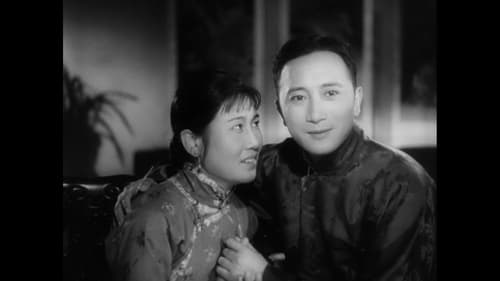
Ms Chow
"Family" (1953), which launched the Union Film legacy, "Spring" (1953) and "Autumn" (1954) are adaptations of Ba Jin's highly regarded novel "Torrent Trilogy". In "Family", director Ng Wui skilfully condenses the voluminous first part of the novel into an emotionally powerful and intellectually focused story of youngsters struggling to survive oppression and repression in a feudalistic family. This well-received film quickly established the company's reputation.

Sixth Aunt
A prodigal son is married to a woman his mother dislikes. The wife is then expelled from the family circle and forced to become independent.

Fong Yim-fun puts on a tour de force as an ill-fated woman, separated from her lover through an arranged marriage to the terminally ill and impotent son of a warlord. The power struggle within the family led to an inevitable murderous consequence. Seven years later, the heroine's ex-lover, now an ambitious detective, is keen to solve this almost forgotten case, only to discover that he is also part of the enigma.

Fong Yim-fun puts on a tour de force as an ill-fated woman, separated from her lover through an arranged marriage to the terminally ill and impotent son of a warlord. The power struggle within the family led to an inevitable murderous consequence. Seven years later, the heroine's ex-lover, now an ambitious detective, is keen to solve this almost forgotten case, only to discover that he is also part of the enigma.

The sophistication of 1950s Hong Kong cinema is vividly illustrated in this film of limited budget and resources. Cantonese opera star Sun Ma Si-tsang plays a country boy who looks exactly like Sun Ma and is asked by a rich girl to impersonate the star, to help her stage an opera. The self-reflexive humour generated by the absurd situation not only provides delicious parody of celebrity culture but also comments subtly on class inequality and the perils of urbanisation. Sun Ma, who also appears as himself in a stage performance, is complemented beautifully by the brilliant comedian Yee Chau-shui as his sidekick and Hung Sin Nui, another opera superstar, as the spoiled and precocious rich girl.

Lam Gu-Fung
Drama from Hong Kong directed by Ng Wui.

Third Aunt
When both sides of the family move in with a married couple, chaos reigns.

Mad Woman
The film depicts the lives of Guangdong peasants who have gone through the suffering of the Sino-Japanese War only to experience home-grown oppression by a rapacious landlord in their village.
























